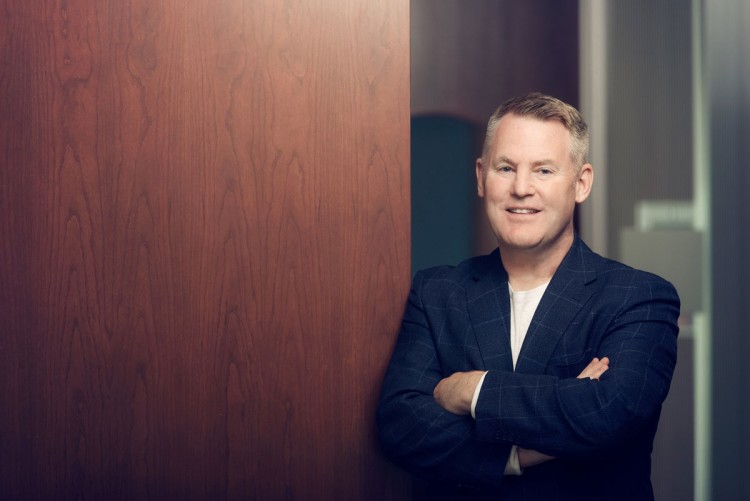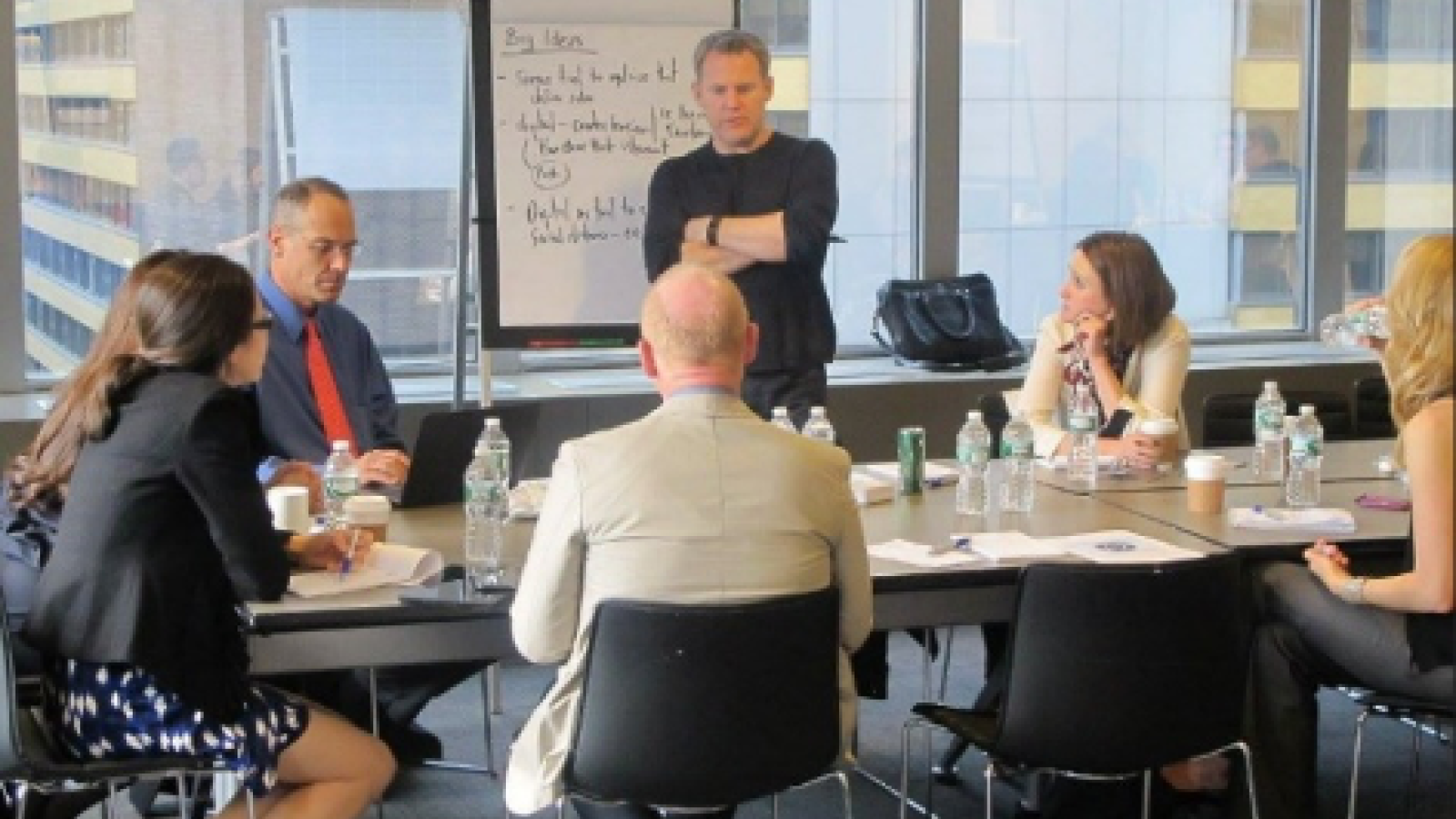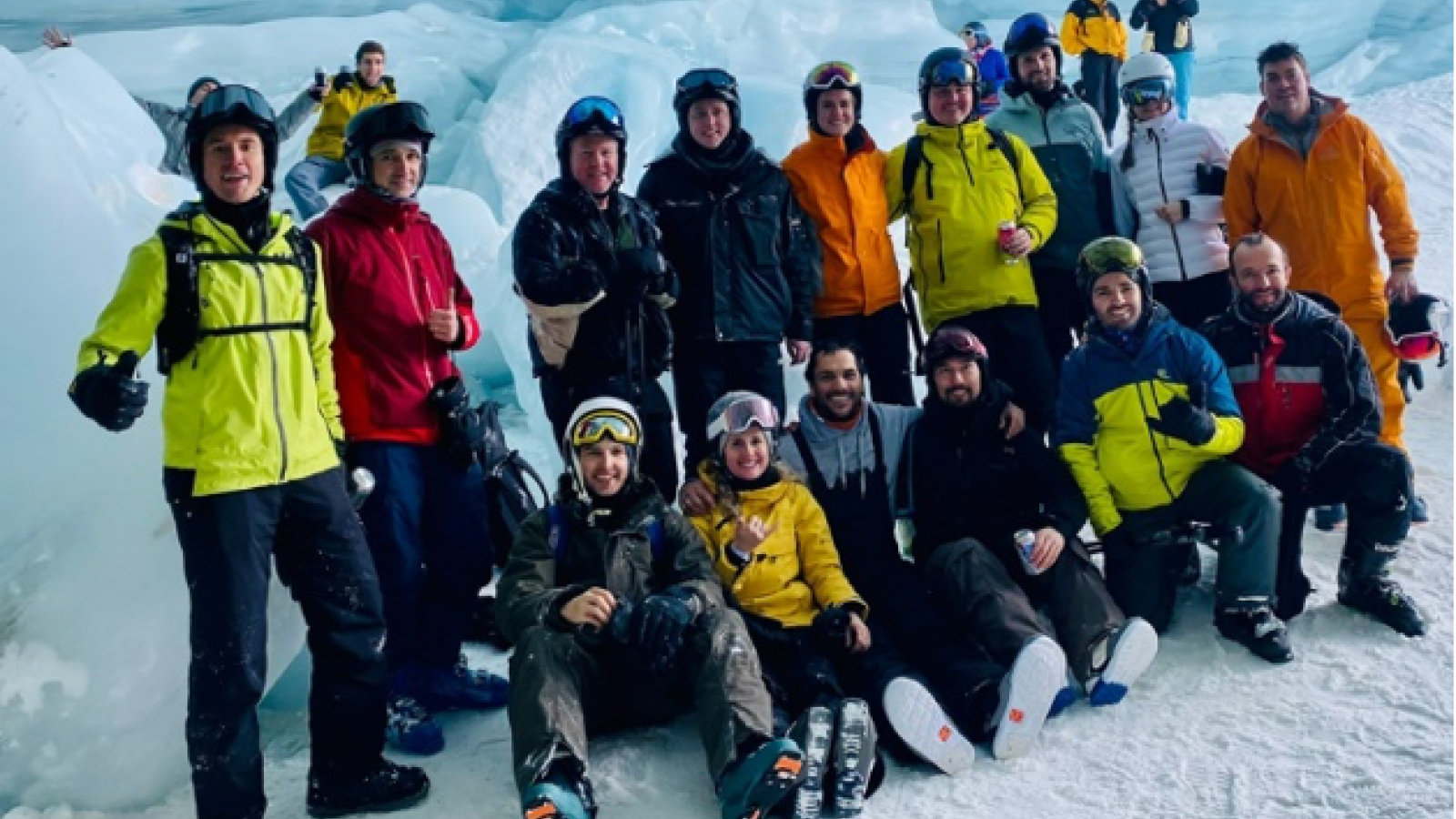Darren Dahl may be new to his role, but he’s no stranger to the UBC Sauder School of Business. From PhD student in 1992 to the newly-appointed Dean in 2022, he has been an increasingly important part of the school for the past 30 years.

Early inspirations
Growing up in Edmonton, Alberta, Dahl attended the University of Alberta to study accounting. “My parents told me I should go into accounting, because that’s where you’ll get a good job – and it is certainly wise to listen to your parents,” says Dahl.
Having always had a strong interest in marketing, Dahl wasn’t sure accounting was the route for him, but it was an intermediate accounting course at the University of Alberta, taught by a professor named Leslie Oakes, that changed the course of his career, and his life. “She told me I was a very curious person, I asked a lot of questions, and that’s what professors do – and that I should think about pursuing a career as a professor. Her advice really stuck with me – it was a turning point, for sure,” says Dahl.
Leaving accounting behind, Dahl joined the PhD program at UBC in 1992 to study consumer psychology. “I thought marketing and consumer behaviour were extremely interesting and maybe this was a potential career path. I was about five years in and I found myself just really falling in love with the notion of being a professor – I often say being a professor is like being an entrepreneur without the risk. You get to go and explore all these fascinating problems or phenomena in the world, but you have this great support system of other professors and students and the whole energy of the university around you.”
“Ah-ha” moments and life-saving research
One such opportunity that caught Dahl’s attention early on in his PhD was during a visit with his grandmother. “I was watching my grandmother trying to dial her rotary phone and she couldn't do it, because of the arthritis in her hands. I thought to myself ‘why can't we make better phones?’ I had one of those ‘a-ha!’ moments, and thought ‘this is some research I could do.’ So I worked on how the effective use of creative cognition – the fundamentals of how we think creatively – can help engineers design better products for people. That was my dissertation in the 90s, and when it was published it started a long line of research for me in how creativity is fundamental to all aspects of marketing.”
Another important piece of research that Dahl conducted in the early 90s was studying the emotions around the purchase of socially sensitive products, such as condoms. When the HIV/AIDS epidemic was at its peak, the federal government offered a grant for research on HIV prevention, to better understand the barriers to condom purchase, and why people were not making better safe sex choices. Dahl studied how strong emotions such as embarrassment presented a barrier to consumers purchasing items such as condoms in public, why and when these emotions occurred, and how to overcome these barriers. The resulting paper was published in the American Journal of Public Health, and it led to a whole line of research in the field of STD prevention. “It was important research that helped public health interventions, and it saved lives, so that was gratifying. It was a great way to start my research career,” says Dahl.
"UBC has been very good to me. It's really given me the training, the confidence, and has helped to magnify my natural talents to enable me to be successful in my chosen field. That’s why I feel, as an alum, a sense of duty to give back to the school, and share the things that I've learned and the skills I have developed with the next generation of students."
Much of Dahl’s early career continued to focus on the emotional reactions and behaviours of consumers, as well as how creativity was critical to the marketing function. This work took him to Hong Kong for a brief period, then back to Canada and to a job at the University of Manitoba. Word of Dahl’s work had gotten around, and by the year 2002, a number of universities across the U.S., Canada, Europe, and Asia were calling. With no shortage of options available to him, he made the choice to return to UBC and the business school where it all had started for him.
“Coming home” to UBC
For the past 20 years, Dahl’s teaching and research at UBC Sauder have explored the fascinating fields of new product development, creativity, emotions in consumption, and social influence in marketing. He has penned papers on topics as varied as how companies can increase engagement in their online communities, to how perfect-looking mannequins can be a turn-off for shoppers with lower self-esteem. As he worked his way up the faculty ranks at UBC Sauder, his teaching efforts and extensive publication record continued to be recognized through prestigious international awards. Today, Dahl is considered one of the world’s leading researchers in marketing.
So how will Dahl bring the combination of these powerful tools together to lead UBC Sauder’s next chapter? Dahl believes the recipe is two-fold: locally, it’s the student experience, and globally, it’s the school’s societal impact.
“Attending university for the first time is already such a pivotal point in someone's life, but the question I want to ask is how can we make it so that every class you walk out of you're thinking to yourself: ‘that changed the way I see X, Y, and Z,’” says Dahl. “Can we fill the UBC Sauder student experience with more ‘wow-moments?’ I think that these types of experiences make better leaders, better business people, and will encourage people to care about others and the world around them. That’s the other part of the equation: the broader impact we have on society through our research, working with alumni, working with the local and international business community, being good global citizens. That’s how we keep and grow that status of being a world-class institution, and a market leader in Canada.”
The power of the right mindset
What may be Dahl’s greatest superpower is also the first thing you notice when meeting him: his infectious positivity. “I just think that positivity goes a long way,” says Dahl. “Any CEO I’ve ever worked with who is really successful, they are always bringing that positive energy. We are coming out of an extremely challenging few years for everyone, there’s no arguing that. And the challenges aren’t over, there is still a ton of work to do. But I think right now is a great time to switch our mindset away from those negative feelings that COVID invariably brought, and start thinking positively about the future.”
“I’m also really excited about where we are today as a society. I think the window is finally open so that students and business are motivated and interested in building knowledge and expertise in sustainability and environmental stewardship, exploring topics in EDI, and helping to achieve Indigenous reconciliation. So now is the time where I think the school can elevate its game in these areas – these are fantastic opportunities for us to contribute to.”
“The notion of continuous improvement also applies to a business school. So, we’re going to try new things. Really successful organizations are not scared to experiment: you learn from failure and experimentation – that makes you stronger. We want to explore new opportunities, solve new problems, do better with old problems, be better to each other, and continue to build a place where everyone can be excited to come to work, study, and build a community.”



